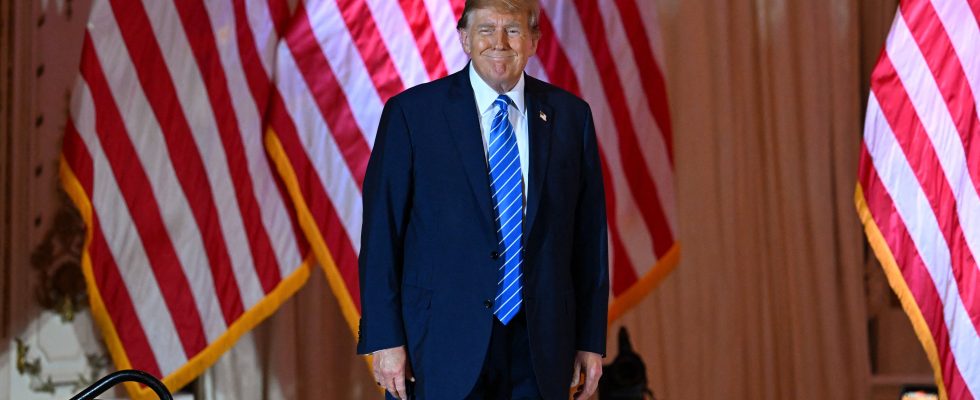The day after “Super Tuesday”, the electoral event of the American primaries during which Donald Trump won the votes of several key states, leading to the abandonment of his only opponent Nikki Haley this Wednesday March 6, the induction as candidate of the former president is no longer in doubt. But evidence suggests that after the primaries, the necessary expansion of his base to moderate voters, and beyond his loyal supporters, will not be so easy. At the exit of the polls, a slew of polls carried out by the American media reveal the magnitude of the task for the former president. “A small but significant share of Republican primary voters say they would be so dissatisfied if Donald Trump became the party’s presidential nominee that they would not vote for him in the November general election,” explains the American agency Associated Press (AP).
In North Carolina for example, 66% of voters for Nikki Haley (her main opponent until Wednesday) think that the billionaire is not fit, mentally or physically, to be president, according to a CNN poll. And 81% of them say they would not automatically support the winner of their party’s primary. In this state, this share of Republicans supporting the opponent represents approximately 30% of the Republican votes in total. A proportion that will weigh in the balance during the final presidential vote. Donald Trump, surrounded by the trials, “should be worried about the unification of the Republican Party”, analyzes Karl Rove, Republican consultant, for AFP.
Between 20 and 30% of Republicans would not vote for Trump
A phenomenon that is repeated in other states where the primaries took place. So if Donald Trump started the 2024 Republican primary strong by winning Iowa and New Hampshire in the first days, “half of the voters in the primary did not vote for him”, underlines the Wall Street Journal in a video. Among them, a majority according to the media indicated that they would not vote for Trump in the presidential election, even if he were inducted as Republican candidate. That’s “2 in 10 Republican voters in Iowa, a third of New Hampshire voters, and a quarter of South Carolina voters,” it says. AP VoteCast.
According to data from Wall Street Journal, age, gender, affiliation with evangelical Christianity or even possession of a weapon are equal in proportion among pro-Trump and Republicans who did not vote for him. It is the degree of education and income, which stands out among Republicans who do not vote Trump. A population close to the sociology of Republican voters as they constituted the base before the arrival of Donald Trump in the political landscape, “which we called the Republican Country Clubwith a high income, and urban,” describes the newspaper. “Donald Trump has activated a population that did not vote much before, many working class people”, who care more about issues of employment, migration and of political effectiveness regardless of the legal consequences, thus transforming part of the party’s base. Conversely, more traditional Republican voters are more interested in, for example, support for Ukraine, or in foreign policy.
Anti-Trump Republican figures
Within the party, a small but vocal tandem even publicly assumes that they will not vote for Donald Trump in the presidential election if he becomes the official Republican candidate. On March 3, Alaska Senator Lisa Murkowski admitted “that she ‘could not’ vote for the former president in the 2024 elections if he wins her party’s nomination again.” She thus joins Mitt Romney, Republican senator from Utah, one of the few to loudly assert his opposition since the start of the campaign.
If the opposition of a part of Republican voters does not slow down Donald Trump’s triumphant march towards the nomination as Republican presidential candidate for the moment, “this could be a problem for him later” underlines the agency AP. That is to say, during the final duel which will most likely pit him against outgoing president and Democratic candidate Joe Biden. According to the outlet, between half and two-thirds of staunchly anti-Trump Republican voters in the early primaries said they voted for Biden in 2020. On top of that, about 1 in 10 voters who said they supported Trump in the general election of 2020 indicated that he would not do so this year. “A question arises, however,” underlines AP. “Does this mean they would rather vote for Trump’s opponent?”
